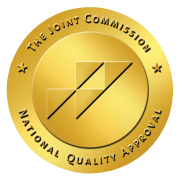Antidepressants and Their Side Effects
The first thing about depression and getting treatment (medicated or not) is recognizing it. So many people walk through life with a dark cloud over their days and cannot look closely at what is happening. They have lost interest in their hobbies. They may have lost connections with their friends or community. They may have even lost their job or stopped school. And yet they still have not wondered if there might be a way out of the bleakness.
The reality is depression is a complex disorder. And typically, it takes work and professional help for folks to work through it. That said, antidepressants can help. But there are quite a few out there, and different ones affect people differently. So, when considering if you need antidepressants, you may want to consult this list of antidepressants and their side effects.
The Role of Antidepressants and Their Side Effects
Along with getting depression therapy, antidepressants can have an important role to play in helping with depression. The right medicines can elevate your mood and lift you from the constantly depressed state. They can also be the first line of treatment to treat depression that is mild, moderate, or severe. Depression medicines may be used alone or along with counseling and other therapies.
There are many different types of depression medicines currently available. With the right one, you may feel more emotionally stable and work with the psychotherapist to work through the complexities of your depression.
Types of Antidepressant Medications and Common Side Effects
Depression medications work in different ways.
SSRI
Selective Serotonin Reuptake Inhibitors (SSRIs) like Prozac, Paxil, Zoloft, and others are often the first choice of antidepressants because they have fewer side effects, even at high doses, and are pretty effective. They work by increasing the levels of serotonin in the brain. Serotonin is a neurotransmitter that regulates mood, appetite, sleep, and other bodily functions.
Common Side Effects of SSRIs:
- Nausea, diarrhea, or gastrointestinal problems
- Sexual dysfunction, including decreased libido or difficulty achieving orgasm
- Insomnia or drowsiness
- Headaches
- Weight gain or loss
- Anxiety or agitation
SNRI
Serotonin and Norepinephrine Reuptake Inhibitors (SNRIs) like Cymbalta, Effexor XR, Fetzima, and Savella work by keeping up the levels of neurotransmitters like serotonin and norepinephrine (feel-good chemicals in the brain) and alleviating depression symptoms.
Common Side Effects for SNRIs:
Nausea, diarrhea, or gastrointestinal problems
- Sexual dysfunction, including decreased libido or difficulty achieving orgasm
- Insomnia or drowsiness
- Headaches
- Sweating or hot flashes
- Increased blood pressure
TCA
Tricyclic Antidepressants (TCAs) are a reasonably old treatment and may be used in people who do not respond to other medications. By blocking the reuptake of certain neurotransmitters in the brain, including serotonin, norepinephrine, and dopamine, more of these neurotransmitters remain in the synapses between neurons, which can increase their activity and improve mood regulation. Some include amitriptyline, Norpramin, Tofranil, Pamelor, Vivactil, Surmontil, and others.
Common Side Effects for TCAs:
- Dry mouth, constipation, or urinary retention
- Blurred vision or other vision problems
- Drowsiness or dizziness
- Weight gain
- Sexual dysfunction
- Increased heart rate or other cardiovascular effects
MAOI
Monoamine Oxidase Inhibitors (MAOIs) were also popular in the 1950s and worked by inhibiting monoamine oxidase production in the body as this chemical removes feel-good chemicals like serotonin and norepinephrine. When these chemicals are present, you are likely to feel better.
Common Side Effects for MAOIs:
- Dangerous interactions with certain foods, such as aged cheeses, cured meats, and fermented foods
- Dry mouth, constipation, or urinary retention
- Drowsiness or dizziness
- Sexual dysfunction
- Increased heart rate or other cardiovascular effects
Atypical Antidepressants
Atypical Antidepressants are Desyrel, Serzone, Remeron, Brintellix, Trintellix, and others. Under this category are also herbs and natural remedies like St. John’s Wort, which may be effective in some people.
Common Side Effects for Atypical antidepressants:
- Nausea, diarrhea, or gastrointestinal problems
- Drowsiness or insomnia
- Weight gain or loss
- Sexual dysfunction
- Headaches or dizziness
Factors to Consider When Choosing a Depression Medication
Before prescribing any one or more medications, your doctor will consider your personal health history, the medications you currently take for any other health issues, and other factors. Keep in mind that antidepressants help let you lead a relatively everyday life.
Occasionally side effects may be temporary and may wear off when the medicine is taken for some time, and at times the risk and reward ratio must be considered. Whether you or your loved one choose to go with medications to help with depression, a structured mental health program is still the best option for long-term wellness.
Lido Wellness has vast experience and knowledge of the best options for each case. For example, many of our patients have responded well to TMS therapy. It is a non-invasive procedure that uses magnetic fields to stimulate nerve cells in the brain. EMDR also has helped people with depression and trauma. Of course, our psychotherapy in Newport Beach is sought after and highly acclaimed. To find out more, call our team today for a free consultation: Call Us Now 949-503-9655.




